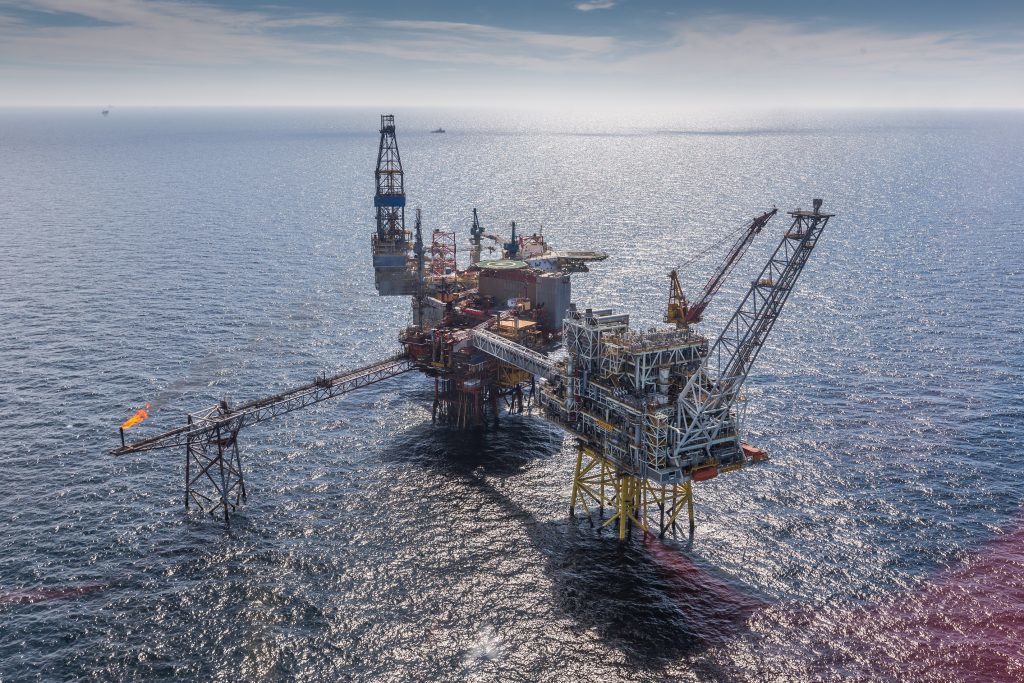
North Sea oil and gas reserves will run out within the next 10 years, a Scottish geoscientist has said.
Prof Roy Thompson of Edinburgh University said a study of production decline in offshore fields showed the industry is entering its final decade.
The research also cast doubt on the Scotland’s prospects of developing an “economically feasible” fracking industry.
The study, published in The Edinburgh Geologist, said only 10% of the UK’s original recoverable oil and gas remains.
The gloomy prediction was based on analysis demonstrating that not enough new discoveries had been made in the last 20 years to replace produced reserves.
If the predictions turn out to be correct, the UK will soon have to import all the oil and gas it needs, researchers said.
The forecast will come as a surprise to many in the oil and gas industry, as a number of projects with long production lifecycles recently came onstream, or will do in the near future.
BP’s Quad 204 project went online in May and is expected to deliver 450million barrels of oil equivalent through to 2035 and beyond.
Statoil’s Mariner field east of Shetland, slated to start producing next year, is currently expected to yield 250million barrels over a 30-year period.
And BP’s Clair Ridge project is designed to continue producing until 2050.
The research said also fracking was likely to be “too restricted” to become an effective industry, as many possible sites had complex geologies and were in densely populated areas.
“All in all, Scottish shales may well have a success factor of zero,” said Prof Thompson, who led the study.
He said the UK needed a “bold transition to renewables, energy storage, improved insulation and energy efficiencies”.
A moratorium on unconventional oil and gas development in Scotland has been in place since January 2015 while the government investigates evidence on its potential impact.
A consultation on fracking was launched earlier this year and finished at the end of May.
A final decision is expected to be made by ministers by the end of the year.
Prof Thompson said Scotland should reserve judgement until the results of fracking operations in the North of England are known.
He said fracking’s prospects were brightest south of border, where gas resource estimates are higher and the geology is simpler.
“If fracking is not commercially viable in the North of England, it certainly won’t be in Scotland,” Prof Thompson said.
“The Scottish Government would be well advised to wait and see what happens south of the border.”
A Scottish Government spokeswoman said: “Scotland’s offshore oil and gas industry has a bright future, and, with the right regulatory and fiscal environment, the basin has up to 20 billion barrels of oil equivalent remaining, and this year has seen one of the biggest new discoveries of untapped oil in recent times.
“However it is the UK Government which retains most of the policy responsibility for the industry and which must use those powers to create the appropriate climate to protect jobs and investment.”

